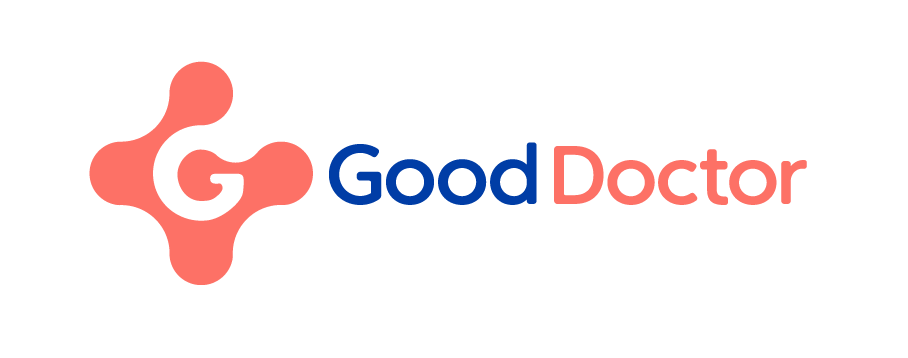Share This Article
- The Covid-19 pandemic plays a crucial role in driving the healthcare transformation through digitalization. Innovative digital solutions in healthcare will become a new necessity.
- The innovation of digitizing healthcare in the pandemic era is the main topic of discussion in the first day of Roche Fair, which will take place online on 12-13 November 2021.
Jakarta, 12th November 2021 – Digitalization-driven healthcare industry transformation that occurred during the 20 months of the pandemic indicates a shift in patient preferences in obtaining health services. The number of digital healthcare service platform users has increased by more than 70 percent compared to the pre-pandemic period.
Simultaneously, the Indonesian Hospital Association (Persi) recorded a
decline in non-COVID-19 patient visits to hospital by up to 80 percent. The digitalization of healthcare infrastructure became the main topic of discussion on the first day of the virtually organized Roche Fair 2021.
“The demands on health systems will continue to increase, and as the pandemic has shown, calls for the long-term adoption of more efficient and effective ways of providing care. Digital technologies can help to address healthcare delivery challenges while also rapidly connecting the dots between patients, healthcare professionals, payers and policy makers,” said Managing Director of Roche Diagnostics Asia Pacific Lance Little.
Lance explained that Roche works closely with healthcare facilities (fasyankes) and the government to continue innovating and developing clinical technology. According to him, health services must combine a science, data, and technology-based approach. For health workers, this allows a more accurate decisionmaking process in a shorter time lag. Meanwhile, for patients, the downtime experienced in the medical checkup and test process is reduced and treatment can be obtained quicker.
“Digitalization is the solution to create service efficiency and effectiveness that lead to the safety of patients and health workers in hospitals. The pandemic has eventually led to the breakthrough innovations in digitalizing RSCM which was built for the last few years. One of the most impactful changes is on the online registration system and integrated registration that starts from integration of outpatient services to admission, support and other services. This have significantly reduced patient waiting time. With this system, we are also better at controlling health protocols during the pandemic. As a result, the queues at the hospital are no longer too piled up and can be arranged to keep a distance. When patients and health workers are equally vulnerable, digitalization has made it easier for us to work more quickly and accurately to provide the best service. ReadyDok teleconsultation is a breakthrough by ensuring data sovereignty, all patients are connected to medical records so that surveyors can trace them and handled professionally by doctors who have SIP or nurses, pharmacists and other health workers at our hospital. Hospitals digitalization leads to better and smarter services,” said Chief Executive Officer of Cipto Mangunkusumo Hospital dr. Lies Dina Liastuti, Sp.JP(K), MARS, FIHA.
Chief Information Officer of PT Siloam International Hospitals Tbk Ryanto Marino Tedjomulja revealed Health facilities bear an increase in operational costs and service during the pandemic in order to maintain
the safety, standard, and high quality. The application of technological innovations in daily hospital operational activities is considered to be able to reduce the increase in these costs without reducing the quality of service.
“During the pandemic, many patients are afraid to go to the hospital. For this reason, we have made various breakthroughs so that services can remain optimal, one of which is by strengthening the MySiloam app platform for the patient registration process, paying for medical checkups, teleconsultation with doctors, obtaining lab results, and medical history digitally. Our digitization also makes it easier for patients to get homecare facilities. In addition, a digitalization system is also carried out for theexamination of tests related to Covid-19, so that patients can easily order services and get results through a digital platform so that they no longer need to come back to the hospital. Digitization is something that is necessary and very possible for health providers, the opportunity for all of us to develop is still very large,” said Ryanto.
Inclusive Healthcare
All these breakthroughs in the healthcare sector succeeded in easing the burden on patients. However, it requires the commitment of stakeholders in the government, industry, and community to ensure the convenience of digital infrastructure can be enjoyed by the larger community, regardless of social and economic background.
“Telemedicine can help the community get access to health services when there is an overload capacity in the hospital, and also help the community to be more proactive in managing their own health. Service collaboration is important and needs to be implemented. Data integration with various stakeholders will also of course be connected more easily. To implement a similar thing, of course, it requires not only regulations from the government, but also the readiness of infrastructure and technology as well as existing personnel, so that health facilities can provide telemedicine services as well,” explained the Head of Medical Good Doctor Technology Indonesia dr. Adhiatma Gunawan.
“While there is tremendous potential, the most tangible benefit digitalisation offers health systems is the opportunity to realise their vision of proactive and preventative care,” concluded Lance.
-End-
About Roche
Roche is a global pioneer in pharmaceuticals and diagnostics focused on advancing science to improve people’s lives. The combined strengths of pharmaceuticals and diagnostics, as well as growing capabilities in the area of data-driven medical insights help Roche deliver truly personalised healthcare. Roche is working with partners across the healthcare sector to provide the best care for each person.
Roche is the world’s largest biotech company, with truly differentiated medicines in oncology, immunology, infectious diseases, ophthalmology and diseases of the central nervous system. Roche is also the world leader in in vitro diagnostics and tissue-based cancer diagnostics, and a frontrunner in diabetes management. In recent years, the company has invested in genomic profiling and real-world data partnerships and has become an industry-leading partner for medical insights.
Founded in 1896, Roche continues to search for better ways to prevent, diagnose and treat diseases and make a sustainable contribution to society. The company also aims to improve patient access to medical innovations by working with all relevant stakeholders. More than thirty medicines developed by Roche are included in the World Health Organization Model Lists of Essential Medicines, among them life-saving antibiotics, antimalarials and cancer medicines. Moreover, for the twelfth consecutive year, Roche has been recognised as one of the most sustainable companies in the pharmaceutical industry by the Dow Jones Sustainability Indices (DJSI).
The Roche Group, headquartered in Basel, Switzerland, is active in over 100 countries and in 2020 employed more than 100,000 people worldwide. In 2020, Roche invested CHF 12.2 billion in R&D and posted sales of CHF 58.3 billion. Genentech, in the United States, is a wholly owned member of the Roche Group. Roche is the majority shareholder in Chugai Pharmaceutical, Japan. For more information, please visit www.roche.com.
All trademarks used or mentioned in this release are protected by law.
Media contact:
Dewi Purnomo Sidhi
Communications Manager, Diagnostics Division
Roche Indonesia
Dewi_purnomo.sidhi@roche.com / 08111 612 337

